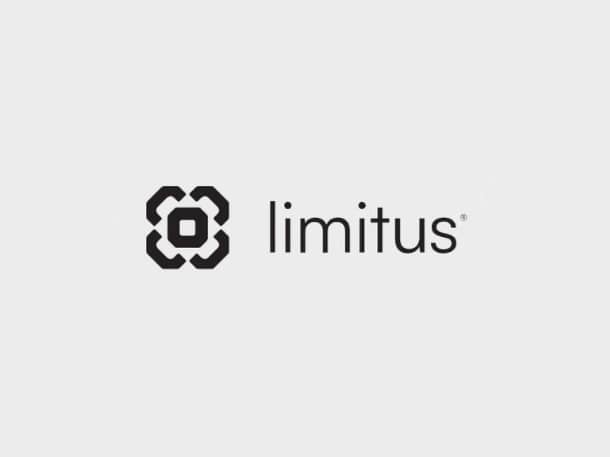订阅 wiki
Share wiki
Bookmark
Limitus
0%
Limitus
Limitus 是一个去中心化的、人工智能驱动的平台,旨在将 Web2 和 Web3 系统集成到一个统一的生态系统中,从而实现跨各种应用程序和设备的自主工作流程自动化和数据管理,并由原生 加密货币 LMT 提供支持。它旨在通过利用人工智能来协调任务并提供实时洞察,从而弥合碎片化技术之间的差距 [1]。
概述
技术经历了不同的发展阶段,导致了碎片化的系统,其中 Web2、Web3 和 AI 在很大程度上独立运行。Web2 平台通常是中心化的,控制用户数据和访问权限,而 Web3 尽管具有去中心化的前景,但可能很复杂且碎片化。人工智能已经成为一种强大的工具,但缺乏与现有工作流程的深度集成。Limitus 的开发旨在通过创建一个统一的层来解决这种碎片化问题,使这些技术可以无缝交互。该平台设想了一个自我组织的系统,其中智能自由流动,决策自主做出,行动无需人工干预即可执行 [1]。
Limitus 背后的核心概念是将设备转变为能够代表用户行事的自主运营商。这是通过一个模块化的人工智能架构实现的,该架构可以协调跨各种应用程序、网络和设备的工作流程,包括中心化的 Web2 服务和去中心化的 Web3 协议。该系统被设计为自主运行,响应语音命令等输入,并利用先进的人工智能模型来确定完成任务的最佳配置 [1]。
Limitus 强调用户控制和隐私,提供基于云和本地的部署选项。这允许用户选择如何处理和处理他们的数据,确保敏感信息可以保留在他们自己的网络中(如果需要)。该平台的最初重点包括 去中心化金融 (DeFi) 和交易自动化,并计划扩展到生产力、市场分析以及跨金融、商业、游戏、能源和物流等领域的智能工作流程管理 [1]。
技术
LIMITUS 通过三层架构运行:计算、编排和执行 [1]。
- 计算: 这一层利用微调的大型语言模型 (LLM) 和检索增强生成 (RAG) 来实时合成来自 Web2 和 Web3 来源的结构化和非结构化数据。
- 编排: 这一层在统一的界面下连接各种 API、钱包 和网络,从而实现复杂工作流程的自动化,否则这些工作流程需要手动协调。
- 执行: 任务被设计为尽可能在用户的设备上本地完成。这种方法旨在保护用户隐私并保持对数据和决策的控制 [1]。
该平台支持两种主要的部署架构:
- 云架构: 此设置使用 Kubernetes 管理的基础设施来实现可扩展且安全的人工智能推理和数据检索。它集成了加密管道、微服务、用于缓存的 Redis 和用于实时查询的向量数据库。对于云中安全金融计算,使用同态加密来处理加密数据。
- 本地架构: 此选项允许用户在其家庭网络上本地部署 LLM 可执行文件。它使用 FAISS/SQLite 设置一个私有 LLM 服务器,用于本地向量搜索和存储。提供了一个安全的 API 端点,只能在本地网络中访问,确保所有数据处理和存储都保留在用户的系统上。此设置优先考虑数据主权并启用离线功能。
LIMITUS 旨在同时与多个设备集成,包括 PC、Android 手机、iPhone 和 Mac,允许用户从单个平台管理 跨 连接设备的任务。[1] [2] [7]
主要特点
LIMITUS 包含多项旨在提供自主控制和集成功能的特性:
- 语音驱动的自动化: 该平台利用语音界面允许用户发出命令并自动化复杂任务和工作流程,而无需技术技能 [1]。
- 人工智能驱动的洞察: LIMITUS 利用微调的人工智能模型分析数据,以提供实时洞察并支持跨各个领域的决策 [2]。
- 隐私优先部署: 用户可以选择使用加密数据处理的安全云部署,也可以选择将所有数据保留在其家庭网络中的本地部署,从而确保隐私和控制 [1]。
- 无缝集成: 该平台与 Web2 和 Web3 系统连接,包括 MetaMask、Phantom 和 Solflare 等多链钱包,以实现统一的操作和自动化 [1]。
- 实时数据分析: 高级模型获取、分析和呈现实时数据,用于市场趋势分析或项目更新等任务 [1]。
用例
Limitus 旨在自动化跨各种应用程序和行业的任务和工作流程。潜在用例示例包括:
- DeFi 自动化: 优化和执行跨链 DeFi 策略,例如管理流动性或利用市场机会,可能在后台进行。
- 代币情报: 总结有关特定代币的信息,包括 白皮书、流动性指标和图表分析,以帮助识别潜在的进入和退出点。
- 动态调度: 根据不断变化的优先级自动重新组织个人或专业日程安排,并管理通信,例如回复电子邮件。
- 工作流程自动化: 通过单个语音驱动的界面管理电子邮件、订单、电话和提醒等日常任务。
- 多链钱包管理: 从统一的平台跨多个 区块链 钱包和网络跟踪、管理和执行交易。
- 交易者洞察: 根据准确性和 ROI 等指标,识别 Telegram、Discord 和 Twitter 等社交平台上表现出色的交易者和相关讨论。
该平台的应用程序旨在扩展到金融和生产力之外,包括商业、游戏、能源和物流。[1] [5] [6]
代币经济学
与 LIMITUS 平台关联的原生 加密货币 是 LMT。截至 2025 年 6 月,LMT 代币的流通供应量约为 8.3013 亿个 LMT,最大供应量约为 9.9998 亿个 LMT。该代币在各种交易所上市,包括 Raydium 等 去中心化交易所 和 XT.COM、BVOX、WEEX、Hibt 和 MEXC 等 中心化交易所 [3]。
该代币主要与 SOL 和 USDT 等交易对进行交易 [3]。
历史
LIMITUS AI PTE. LTD. 是该公司的官方运营和法律名称 [1]。该项目在 X(前身为 Twitter)上的社交媒体活动始于 2024 年 12 月 [4]。该平台于 2024 年 12 月推出,作为一个连接 Web2 和 Web3 的人工智能驱动的自动化平台 [4]。2025 年 1 月分享了一个演示,展示了该平台通过 Jupiter 交易所和 Raydium 协议在 Solana 区块链 上自主增加流动性的能力 [4]。
隐私和安全
隐私是 LIMITUS 的核心关注点,为用户提供控制其数据的选项。该平台提供两种部署模型:安全云部署和本地部署。本地部署允许系统完全在用户的家庭网络上运行,从而将所有数据置于他们的控制之下 [1]。
在云设置中,LIMITUS 采用同态加密进行安全金融计算,允许对加密数据进行计算。在本地,计算在用户的系统内处理,旨在实现完全隐私。本地部署使用可执行文件来设置一个私有服务器,该服务器具有一个只能在家庭网络中访问的 API 端点,从而确保数据保留在用户的环境中 [1] [2]。语音识别功能旨在仅在给出特定命令或唤醒词时激活,而不是持续录音 [1]。
发现错误了吗?
